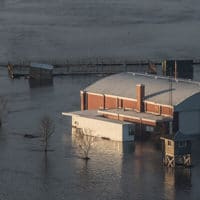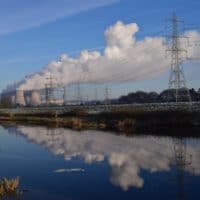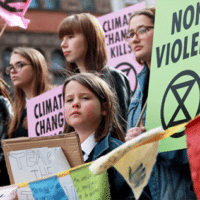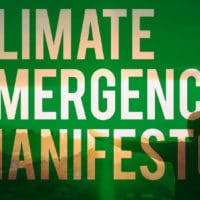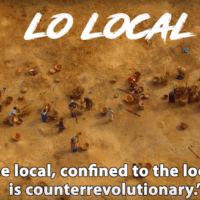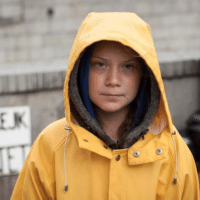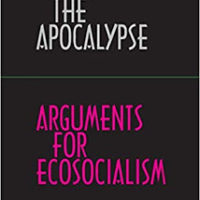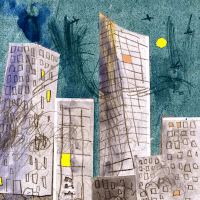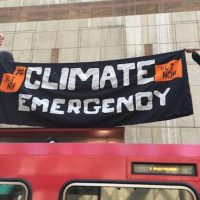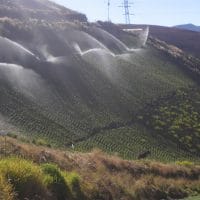-
Students from 1,600 cities just walked out of school to protest climate change. It could be Greta Thunberg’s biggest strike yet
Hundreds of thousands of students around the world walked out of their schools and colleges Friday in the latest in a series of strikes urging action to address the climate crisis. According to event organizers Fridays for Future, over 1664 cities across 125 countries registered strike actions, with more expected to report turnouts in the coming days.
-
The wettest 12 months-new analysis shows spikes in flood alerts in the U.S.
April 2019 marked the wettest 12-month period in the United States since record-keeping began 124 years ago, breaking the previous record set from May 2015–April 2016. In most places in the contiguous U.S., by April 2019 it had already rained more than the annual average during the 20th century. This week, heavy rain is dumping up to 1 foot of rain in northern and central parts of the U.S.. It’s evident that extreme precipitation events are getting more extreme, and also that climate change is one of the culprits.
-
Working Group on the ‘Anthropocene’
Following guidance from the Subcommission on Quaternary Stratigraphy and the International Commission on Stratigraphy, the AWG have completed a binding vote to affirm some of the key questions that were voted on and agreed at the IGC Cape Town meeting in 2016.
-
First strike
To help this movement win, we should ask why others lost. We should ask, for example, why Occupy, despite the energy and sacrifices of so many, came to an end, while the institutions it confronted remain intact.
-
Before it’s too late
When I arrived at the urban homestead Mary Christina Wood shares with her family in Eugene, Oregon, she had just pulled homemade bread from the oven. I had come to interview her about a bold legal campaign to prevent climate catastrophe. We sat at her kitchen table, near shelves lined with jars of food she […]
-
The planet is on fucking fire
Nye promptly did, with what Oliver admiringly called ” an entirely appropriate amount of profanity.” “By the end of this century, if emissions keep rising, the average temperature on Earth could go up another four to eight degrees,” said Nye, growing agitated. “What I’m saying is the planet is on fucking fire.”
-
“There is no alternative” to managing the economy and the climate
The United States is the country most easily positioned to address climate change but it has done likely the least out of any rich country. China, a country significantly less wealthy than the United States, has likely done the most. In fact, a recent study provides some evidence that China’s carbon dioxide emissions peaked in 2013 and are declining in large part due to changes in China’s industrial structure, which includes pilot programs for pricing carbon, among many other things.
-
A Climate Emergency Manifesto to avert climate catastrophe
The panic button needs to be hit to declare climate emergency. We need serious action now; there is no more time to waste.
-
Dossier 16: Resource sovereignty—the Agenda for Africa’s exit from the state of plunder
In this interview Gyekye Tanoh, head of the Political Economy Unit at the Third World Network-Africa based in Accra (Ghana), elaborates upon the themes of corporate plunder, resource nationalism and people-centered forms of resource management in Africa.
-
Tricontinental Briefing No 1: Canadian mining companies
Introduction Of the world’s mining companies, 60% are headquartered in Canada. In February 2019, 216 companies were listed on the Toronto Stock Exchange (TSX) and 961 companies were listed on the TSX-Venture Exchange (TSXV). Mining accounts for 53% of the composite index. This kind of industry dominance suggests that investors trust the stability of the […]
-
Chavez the Radical XXI: socialism must be created at the grassroots level
In this installment of Tatuy TV’s “Chavez the Radical,” Chavez discussed the role of the commune in the construction of socialism in Venezuela.
-
Climate science deniers resort to attacking Greta because they’ve lost the argument
We can start with the Grande Dame of anti-environmentalism: Koch-sponsored Brendan O’Neill, who Debrorah Orr reminds us “has already devoted a thousand or so of his rancid words to ‘The cult of Greta Thunberg’”.
-
Review of ‘Facing the Apocalypse: Arguments for Ecosocialism’
Clearly there will be ecological issues to resolve once capitalism has been defeated, but that will require a system being put in place that is capable of dealing with the disaster. In other words a society that is not based on the competitive accumulation of capital.
-
Eight Years After: No End in Sight for Clearing the Fukushima Nuclear Disaster
The most critical problem is that three reactors in the Fukushima Daiichi nuclear power plant had been damaged and the 250 tons of more than 1600 spent fuel rods were “reckoned” to have fallen to the bottom of the reactor vessel after having melted at high temperatures. The radiation level there was too high for humans to possibly come close, let alone remove the molten nuclear residue.
-
What kind of climate movement do we need?
Camilla Royle looks at the new climate activism.
-
Climate catastrophe and extinction rebellion
If you’re waiting for some elite politician to fix this ecological mess you will be hung out to dry well past humanity’s expiration date.
-
Extinction Rebellion targets Canary Wharf transport
‘Our aim is to create moments in time when humanity stops and fully considers the extent of the harm we have done’.
-
Ecosocialism: For a fighting ecological trade-unionism
How can we reconcile social struggle and environmental struggle? This question poses problems for trade unionists.
-
Imagining the Green New Deal with Robert Hockett
In this episode, we speak with Robert Hockett, Edward Cornell Professor of Law at Cornell Law School. At Cornell, about his role in crafting the Green New Deal Resolution, his conception of finance as a franchise, and his experience as an advisor to Congresswoman Alexandria Ocasio-Cortez as well to Senators Sanders and Warren.
-
The struggle for a just society is long, requiring action on many fronts
‘The struggle for a socially just and ecologically sound society requires activity on many fronts. This includes the crucial work of organizing and activist engagement, as well as education about the economic, political, and ecological complexities that exist and why so many of the problems facing humanity are either caused or made worse by capitalism.’


